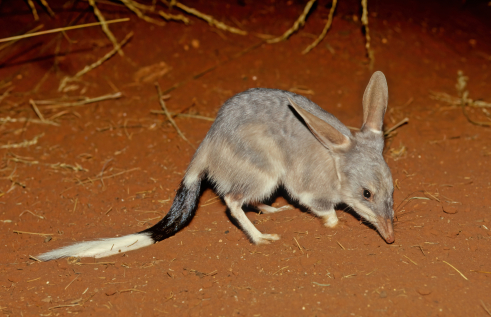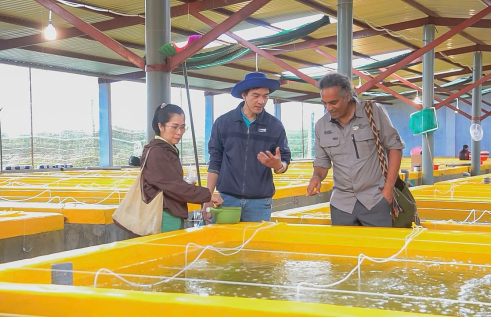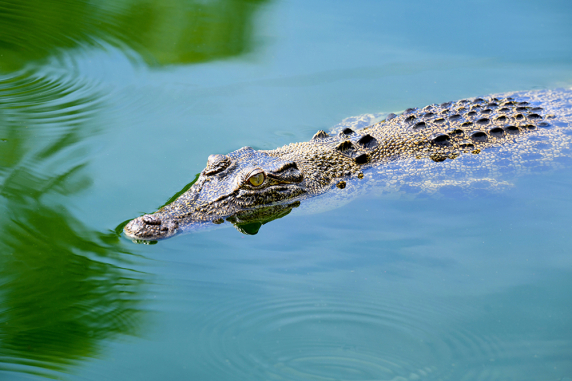news article
NT croc resurgence under investigation
A team of researchers from Charles Darwin University will investigate the impact of the recovery of the northern Australian estuarine crocodile population on river ecosystems after being awarded a Discovery grant in the latest round of Australian Research Council funding.
Research Institute for the Environment and Livelihoods (RIEL) Professor Hamish Campbell said the $390,000 grant would allow his team to assess the ecological changes that have arisen due to the repatriation of estuarine crocodiles across northern Australia.
“The Northern Territory crocodile population has recovered substantially since protection in the 1970s,” Professor Campbell said. “While the recovery is heralded as a conservation success, estuarine crocodiles pose a serious threat to humans and livelihoods.”
He said the project in collaboration with Griffith University, the Australian Institute for Marine Science, the Northern Territory Government and Larrakia rangers would help to better understand the ecological role of estuarine crocodiles and the benefits of conserving them.
“We know crocodiles have significant economic and cultural value, but we don’t know what impact their recovery is having upon the Northern Territory’s unique wetland ecosystems,” Professor Campbell said.
“I have heard from fisherman that the barramundi fishing has improved with crocodile recovery, which suggests broad-scale ecological impacts. But these are only anecdotal reports, and this project will help us to understand if and why this is happening.
There is also a growing body of evidence that shows retaining or restoring large carnivores into ecosystems will counter environmental challenges such as biological invasions, disease, and climate change.”
RIEL co-researcher Dr Keller Kopf said that the three-year project aimed to estimate the amount of food and types of prey required to support populations of estuarine crocodiles in river systems across the Northern Territory.
“We’ll use bioenergetics modelling and field sampling of these predators and prey, including fish and other animals, to improve our understanding of how estuarine crocodiles influence food webs,” Dr Kopf said.
“The restoration of crocodiles provides a rare opportunity, similar to wolves in North America, to empirically test changes in ecosystem processes under varying degrees of large carnivore recovery.
“This is a unique opportunity because it will improve our understanding of the processes that govern the strength of predator-ecosystem interactions.”
The Discovery Projects scheme aims to expand the knowledge base and research capacity in Australia and support research that will provide economic, commercial, environmental, social and/or cultural benefits for Australia.
Related Articles

Working with nature, not against it: How our economies can grow with the environment
Economic growth doesn’t have to come at a cost to the environment, and the ways in which this is possible will be on display at a global conference being held in Australia for the first time.
Read more about Working with nature, not against it: How our economies can grow with the environment
Stronger together: Bilby conservation efforts enhanced by Indigenous knowledge
One of the nation's most iconic and at-risk critters could benefit by combining Indigenous knowledge with western survey methods, according to a new study led by Charles Darwin University (CDU) in collaboration with the North Tanami Rangers and Traditional Owners from the community of Lajamanu.
Read more about Stronger together: Bilby conservation efforts enhanced by Indigenous knowledge
Changing the tide: New project aims to shift attitudes around fish welfare practices
Fish are often overlooked when the term “animal welfare” is used, but a new project is working to ensure happy fins are met with the same enthusiasm as cage-free eggs or grass-fed beef.
Read more about Changing the tide: New project aims to shift attitudes around fish welfare practices
